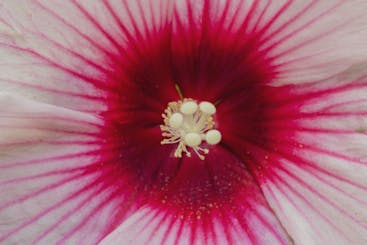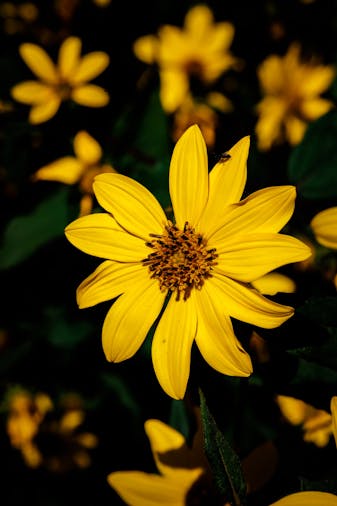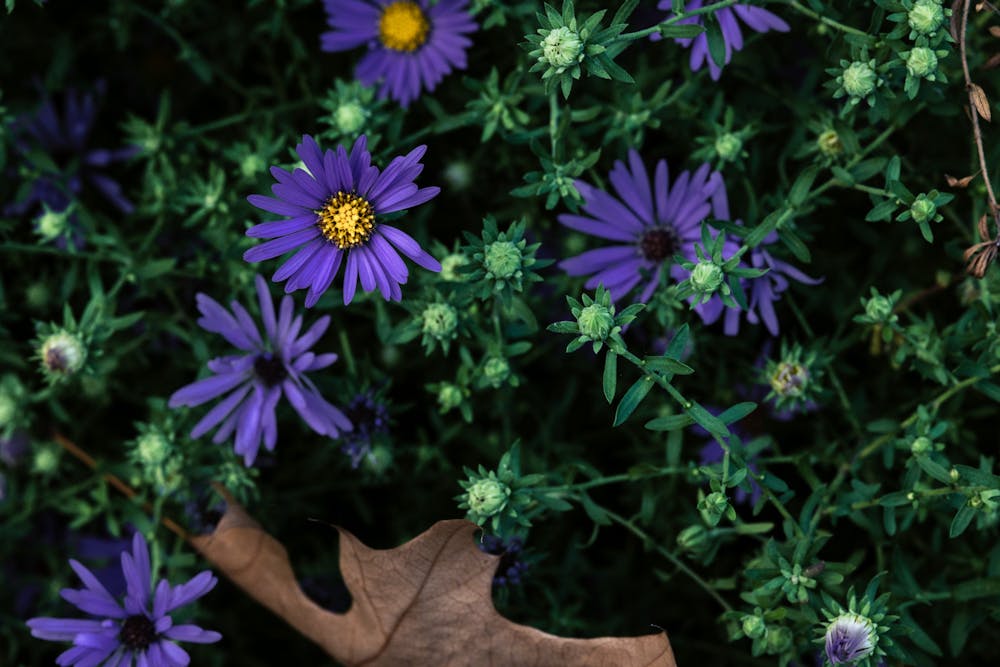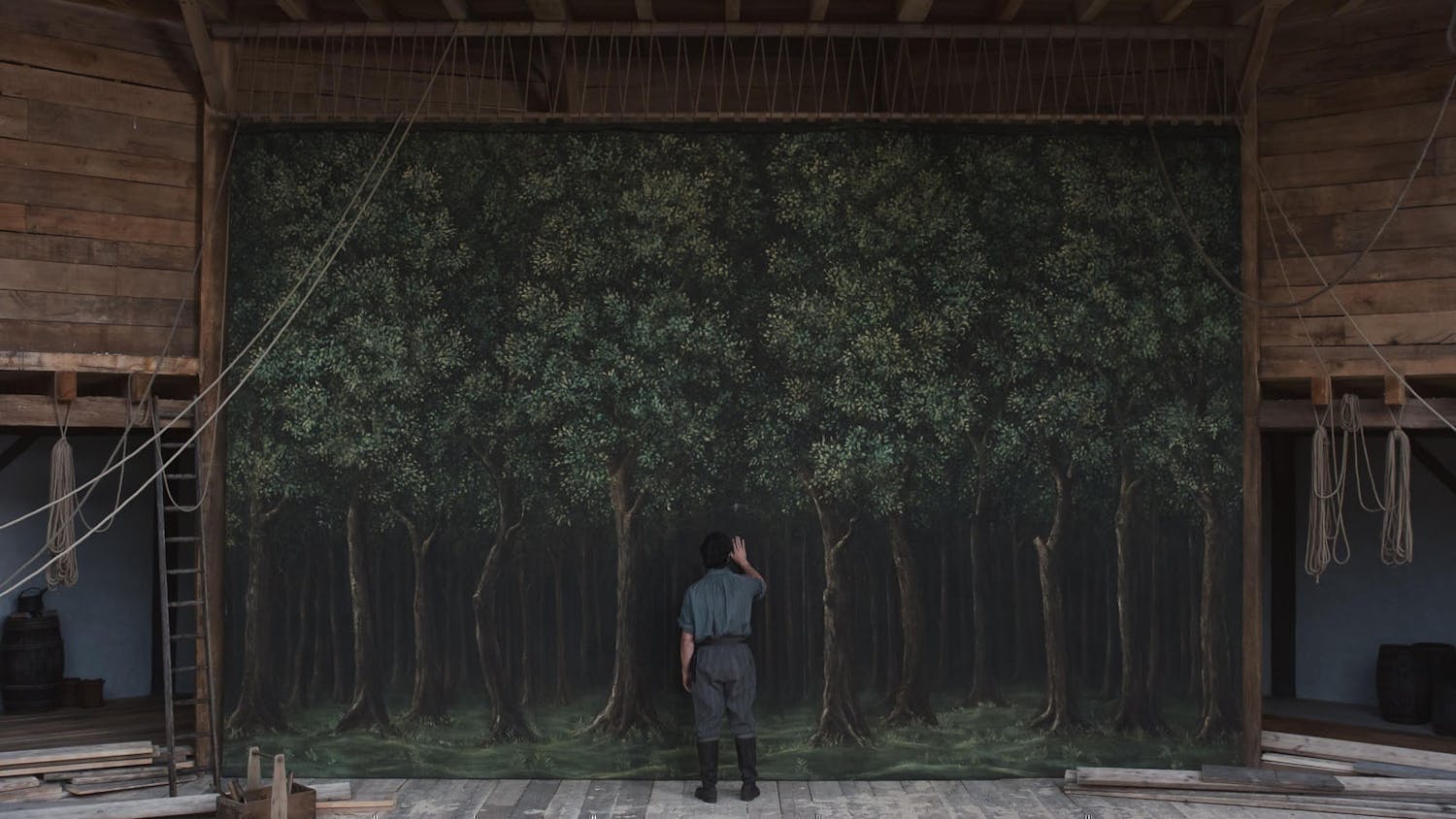Students will bring native plants and flowers to D.C. communities this spring as part of a new regional gardening initiative.
The three-month event, called Wild Visions, is challenging D.C.-area college students to create garden spaces capable of holding 150 plants native to the region. According to the Garden for Wildlife’s Campus Engagement Lead Rosalie Bull, who is organizing the initiative, adding native plants to community spaces will benefit insects and pollinators and, in turn, benefit the region’s ecosystem.
Garden for Wildlife, a program of the National Wildlife Federation, is organizing the event and will provide the plants.
By creating space for the plants, students from across the region will increase biodiversity in D.C., Maryland and Virginia, Bull said.
“If you don’t have the foundation of the native plants, then you don’t have the insects [and] then you don’t have any of the creatures or birds that eat the insects,” Bull said.
Registered students will sow the seeds for their native plants starting April 20.
“We want to see what happens when we invite people to make gardens,” Bull said.
Bull will aid students throughout February, March and April in designing and planning their gardens, giving them ideas on where their garden could be and what it could look like, she said. She will also provide them with a workbook and Pinterest page to give them more inspiration for their garden.
The finished gardens will provide nutrients and space for native animals that have evolved to depend on those specific plants, Bull said.

“As we face the planetary crisis in all of its permutations, biodiversity renewal is a very easy, very impactful low-hanging fruit,” Bull said. “Everybody can do it in their backyard and you make an immense amount of difference just by providing habitat to your local wildlife.”
Garden for Wildlife staff will provide participants with six species native to the region, including Smooth Blue Aster flowers, Coneflowers and Foxglove Beardtongue flowers from the company’s plant reserve. Each time someone buys a plant from Garden for Wildlife, the company adds another native plant to its internal inventory to donate to a community that requests it, according to the company’s website.
“When we create the habitat again, we’re really confident that [native insects and animals] will come to inhabit that space and their population will occupy that space,” Bull said.
Latinos En Acción is one of the American University clubs looking to create that space for Wild Visions.
Club leaders are considering planting their garden in Columbia Heights or Mount Pleasant and including a brick arch to welcome visitors, said Sofia Rodriguez, vice president of the club and a junior in the School of Public Affairs.
To Latinos En Acción President Jocelyn Lopez-Arias, a junior in College of Arts and Sciences, “Wild Visions” is an opportunity to provide for an area of D.C. that club members may not otherwise interact with.
“I do think there are very underprivileged areas in D.C. that not a lot of our members even go to,” Lopez-Arias said. “And so I think exposing them to these areas, and improving those areas is an amazing way to help the greater D.C. community.”
Lopez-Arias and Rodriguez are looking to tie their mid-April garden planting into a week of events in awareness of National Immigrant Resilience Day on April 15.
Gardening’s tie to immigration, Lopez-Arias said, comes in part from the monarch butterfly representing immigration. The species eats milkweed plants, which are native to D.C., and migrate from northern climates to California and Mexico over the winter, according to the U.S. Forest Service.
“They represent migrants and it’s a perfect way to tie in more recognition during our week of events,” Lopez-Arias said.

Before that week of events, though, Latinos En Acción needs to get materials like compost and tools like shovels to create their garden. Garden for Wildlife is not providing those resources but can assist participants in fundraising for their garden, according to Bull.
Rodriguez said the club is planning to see if AU’s Facilities Management can help out.
“So I think from now till then, what we're focusing on is reaching out to AU facilities asking, ‘Do you guys have any extra like compost [we] can borrow? Do you guys have any extra supplies?’ Because that's what we're really missing,” Rodriguez said.
The AU Community Garden, another club participating in “Wild Visions,” is also planning to ask Facilities Management for materials, and have already used their resources in the past, said Kat Raiano, co-president of the club and a senior in CAS.
The Community Garden is considering planting their 150 native plants for AU’s Campus Beautification Day, which Facilities Management has historically hosted in April.
Raiano said they hope the native plants will attract native pollinators to the space.
“Especially because we use [pollinators’] services to pollinate our garden, I think it's really important for us to think about how we can also help them in return,” Raiano said.
To help give back to pollinators, Community Garden leaders have reached out to AU’s Beekeeping Society leaders to talk about collaboration opportunities during the event, Raiano said. There are also opportunities for more clubs participating in “Wild Visions” to work together, they said.
“I feel like it would be more beneficial if we all sort of pooled our resources,” Raiano said. “We can bring a lot of volunteers for Campus Beautification Day if we all want to sort of do this together.”
Collaborating with others can also reward clubs at the end of “Wild Visions.” Judges will give an award to the garden that embraces collaboration while creating the space, according to Wild Visions’ website.
The collaboration award is one of six up for grabs in the event. Gardens can also be awarded for their landscape design, development efforts, community efforts, ability to make a welcoming space and by popular vote, according to the website.
The National Wildlife Federation will certify each garden that wins one of the competitions and provide the gardens each with a bird bath, Bull said.
Beyond certifications and bird baths, though, Bull said she hopes students gain a vision of a possible future for wildlife.
“We want a green future,” Bull said. “We want a future where communities have space to gather freely. We want a future of more creative spontaneity where, if you want to build a garden, let’s do it. Let’s figure out how to make that happen.”
Making a Wild Vision garden space happen, Bull said, can be collaborative and malleable to participants’ ideas and resources.
“We’re in an utterly co-creative space right now,” Bull said. “It’s experimental, it’s exploratory and I’d hate to see people rule themselves out before even actually having an interaction with Wild Visions because we’re here to do what we can to make it more possible.”
This article was edited by Clair Sapilewski, Sara Winick and Abigail Pritchard. Copy editing done by Luna Jinks, Isabelle Kravis and Sydney Kornmeyer.





